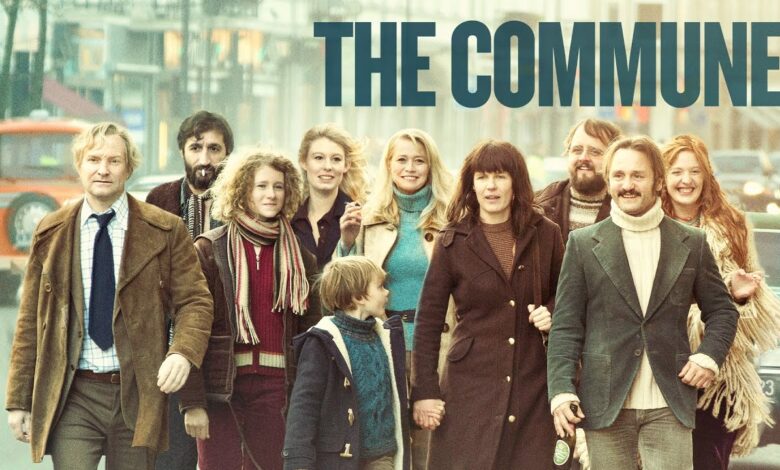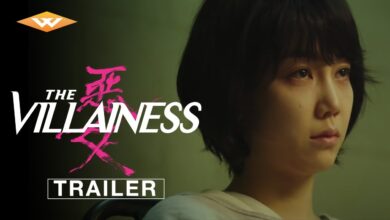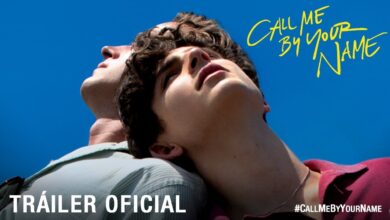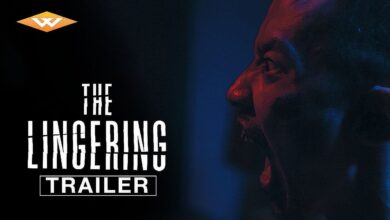The Commune Official Trailer 1 (2017) – Trine Dyrholm Movie

The Commune (2016), directed by Thomas Vinterberg, is a poignant and thought-provoking drama that explores the complexities of human relationships in a non-traditional living arrangement. Set in the 1970s, during a period of cultural and social upheaval, the film delves into the tensions that arise when ideals of freedom, love, and community collide with the realities of human emotions and desires. With a stellar cast, including Ulrich Thomsen and Trine Dyrholm, The Commune offers a compelling examination of how relationships evolve when unconventional living arrangements challenge the boundaries of intimacy and loyalty.At the heart of The Commune is Erik (Ulrich Thomsen) and Anna (Trine Dyrholm), a married couple who decide to transform their spacious home in Copenhagen into a commune. Inspired by the counterculture movement of the 1970s, they open their doors to a group of like-minded individuals, including friends and strangers who share the ideals of collective living, shared resources, and communal freedom. Their dream is to create a space where personal freedom and creativity can thrive, free from the constraints of traditional family structures and societal norms.However, as the commune takes shape, the reality of living in such an arrangement begins to reveal the complexities of human nature. While the communal lifestyle initially appears to promise greater connection and openness, the emotional toll and individual desires soon threaten the stability of the group.The film takes an intimate look at how the idealistic dream of living in a commune can unravel when personal emotions and relationships begin to clash with the collective vision. The first significant challenge arises when Anna, the matriarch of the commune, begins an affair with a younger man named Oliver. This romantic entanglement leads to a series of emotional complications, particularly for her husband, Erik, who must come to terms with his wife’s infidelity and the changing dynamics within their marriage.

As the couple’s relationship grows strained, the tension in the commune escalates. The peaceful and free-spirited environment they sought to create is disrupted by jealousy, resentment, and the difficult realities of navigating open relationships. Erik’s inner turmoil and the struggles within the commune force the characters to confront their own beliefs about love, loyalty, and personal freedom.The film also explores the emotional impact of the commune on the couple’s teenage daughter, Freja. Caught between the ideals of collective living and the breakdown of her parents’ marriage, Freja struggles with the changing dynamics of her family and the tension within the commune. Her experiences reflect the difficult choices faced by young people growing up in unconventional family structures and the emotional confusion that often accompanies such a lifestyle.Freja’s perspective adds an emotional depth to the story, illustrating the ripple effects that a seemingly progressive lifestyle can have on the younger generation. As she watches the adults around her navigate their personal crises, she is forced to grow up faster than she may have anticipated, challenging her own sense of identity and understanding of love.At its core, The Commune is a meditation on the delicate balance between personal freedom and the responsibilities of love and loyalty. The film raises questions about the cost of idealism—how the pursuit of a utopian vision can sometimes come at the expense of personal relationships and emotional well-being. It highlights the tension between the desire for individual freedom and the inherent complexity of human emotions, showing that even in the most liberal and open-minded environments, people are still prone to jealousy, heartbreak, and the longing for connection.The Commune also explores the challenge of maintaining relationships when personal desires and communal values conflict. The film doesn’t shy away from portraying the messiness of life, particularly the complexities of navigating intimate relationships within a group dynamic. It serves as a reminder that while ideals of freedom and collective living may sound appealing, they often fail to account for the emotional realities that shape human behavior.

The film’s pacing is deliberate, with moments of stillness and reflection allowing the characters’ internal conflicts to come to the forefront. Vinterberg’s direction and the strong performances from the cast, particularly Dyrholm and Thomsen, give the film an emotional resonance that makes it more than just a story about a commune—it’s an exploration of human nature, love, and the choices we make in pursuit of happiness.The Commune is both a critique and an exploration of the idealistic pursuit of alternative lifestyles, demonstrating that even the most well-intentioned dreams can be complicated by real-life emotions and desires. It provides a rich and thoughtful commentary on the fragility of human relationships and the complexities of navigating love, loyalty, and personal freedom.In conclusion, The Commune offers an insightful and emotionally resonant exploration of the intersection between love, freedom, and human nature. Through its engaging narrative, complex characters, and realistic portrayal of the challenges of communal living, the film invites the audience to reflect on the cost of idealism and the fragile nature of relationships. It is a powerful reminder that, even in the pursuit of a utopian dream, the complexities of human emotions and desires cannot be easily overlooked.The Commune is a must-watch for those interested in exploring the realities of non-traditional lifestyles and the emotional dynamics that shape our most intimate connections.





